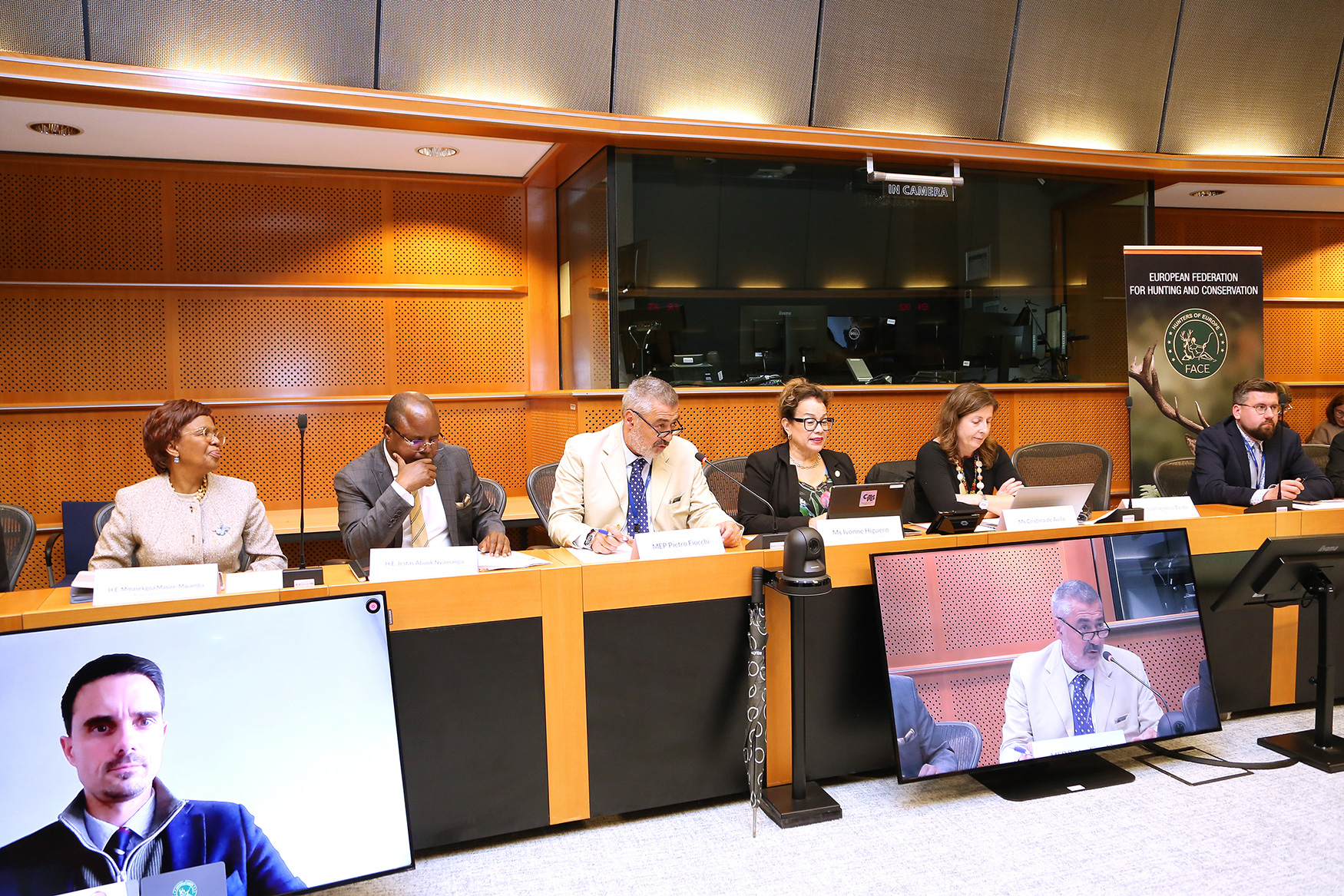
07 Oct 2025 EP Event on Wildlife Trade and Conservation: Shaping the EU’s Agenda for CITES CoP20
On 3 September, a high-level event on the EU’s objectives for CITES gathered EU decision-makers, African ambassadors and experts in the European Parliament.
The Convention on International Trade in Endangered Species of Wild Fauna and Flora (CITES) regulates the international trade of over 40,000 wild species of animals and plants to ensure that this trade does not threaten their survival in the wild. This year, the 20th meeting of the Conference of the Parties to CITES (CITES CoP20) will be held in Samarkand, Uzbekistan (24 November – 5 December 2025), setting the agenda for future international commitments on wildlife trade regulation and conservation.
The event was hosted by MEP Pietro Fiocchi, Vice-President of the “Biodiversity, Hunting, Countryside” Intergroup, and placed a strong emphasis on the EU’s strategic priorities for CITES CoP20, showing how sustainable wildlife trade and management can secure long-term wildlife conservation.
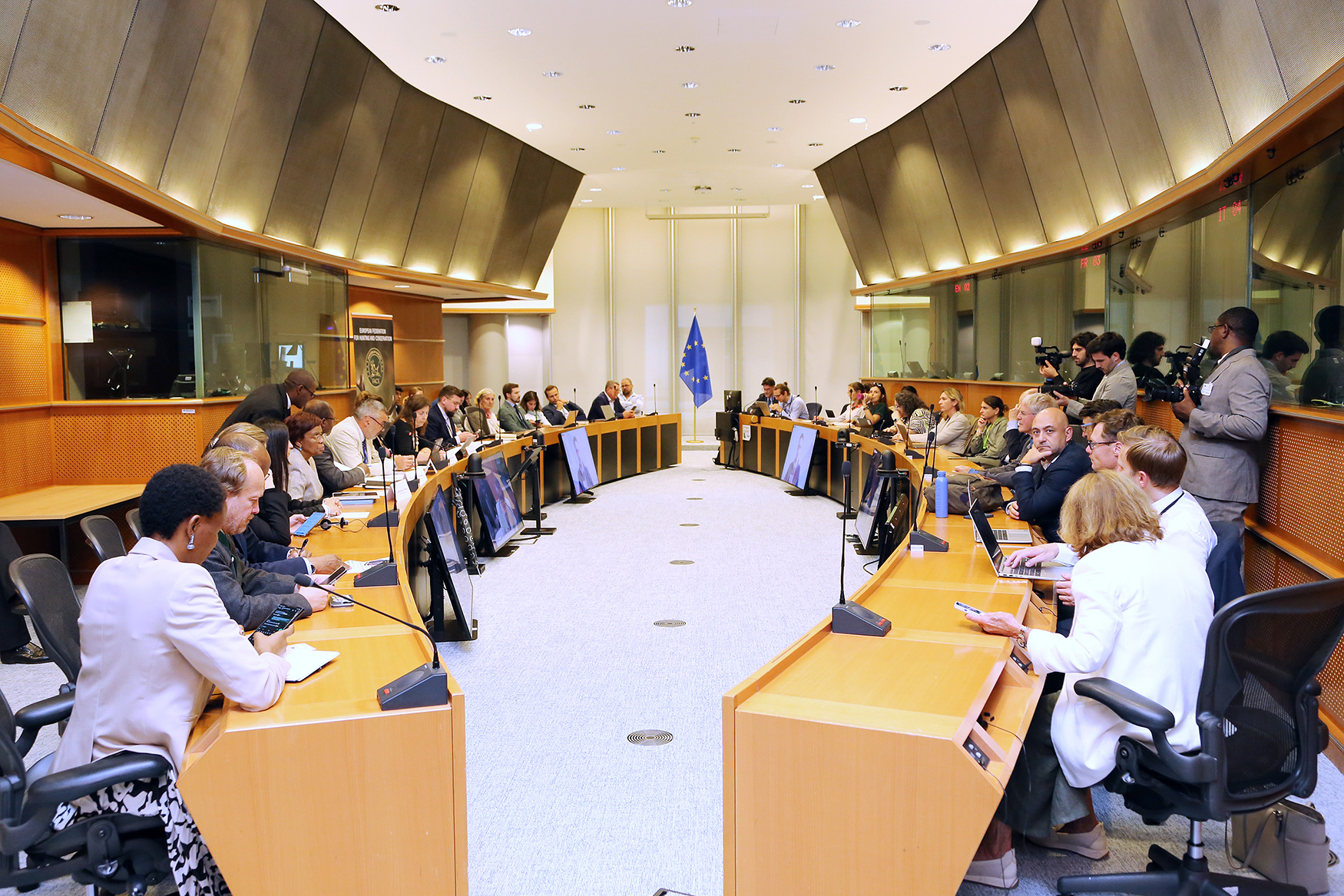
MEP Pietro Fiocchi welcomed the discussions and highlighted the importance of CITES while acknowledging the EU’s science-based and robust legal framework: “CITES is a vital convention that protects wild animals and plants from over-exploitation through trade. As a key Party, the European Union carries a responsibility to promote science-based decision-making and uphold the principle of sustainable use. Well-regulated wildlife trade not only safeguards ecosystems but also sustains the livelihoods of local and indigenous communities and contributes to restoring biodiversity. I am working to ensure the European Parliament’s resolution on the CITES CoP promotes a robust and science-driven framework’’.
Mr. Fiocchi’s opening remarks were followed by Ms Christina de Avila, Head of Unit for Global Environmental Cooperation & Multilateralism at the European Commission’s (EC) Directorate-General for Environment, who delivered a keynote speech on the work of the EC and the Member States leading up to the CITES CoP.
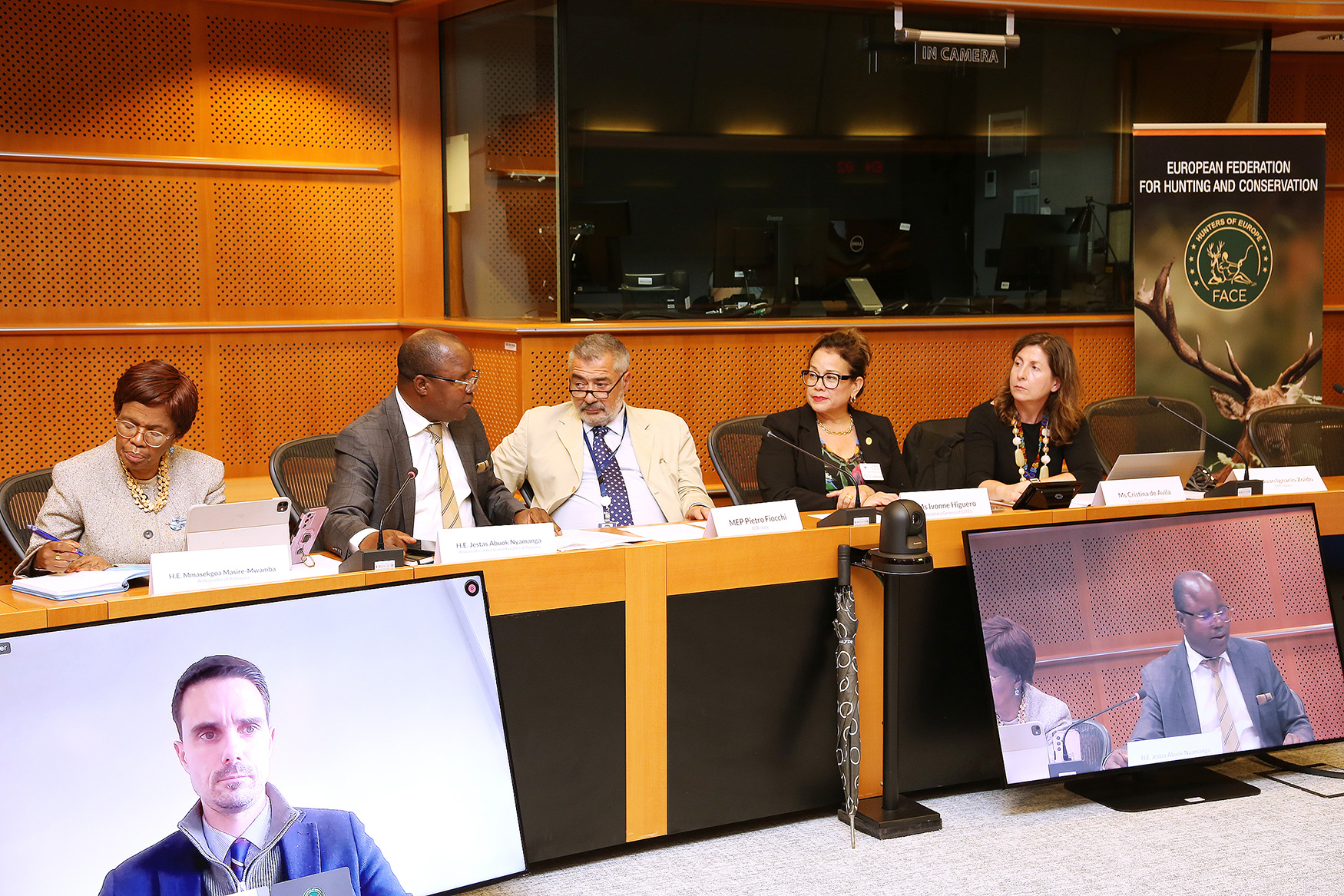
Ms Ivonne Higuero, Secretary-General of CITES, stated: “As we celebrate 50 years of CITES and 10 years of the EU as a CITES Party, the importance of international cooperation to ensure the legality, sustainability, and traceability of global wildlife trade cannot be overstated. The EU has long championed science-based decision-making and transparency, and remains the largest financial supporter of CITES—investing in species conservation, law enforcement, digital permitting, and more. Looking ahead to CITES CoP20 in Samarkand, sustained investment will be essential to safeguard healthy ecosystems and harmonious coexistence between people and nature.”
During the discussion, H.E. Jestas Abuok Nyamanga, Ambassador of the United Republic of Tanzania, emphasized that conservation is an investment which requires sacrifice but delivers lasting benefits for both people and nature. He outlined the huge investment that Tanzania has made in conservation, including allocating more than 39 per cent of its land as protected land. He underlined that financial sustainability is vital, noting, for example, that, when regulated, hunting can provide critical income for conservation and livelihoods. He further cautioned against blanket hunting trophy bans, which undermine conservation efforts, fuelling poaching. He emphasised that decisions must be made multilaterally and based on evidence.
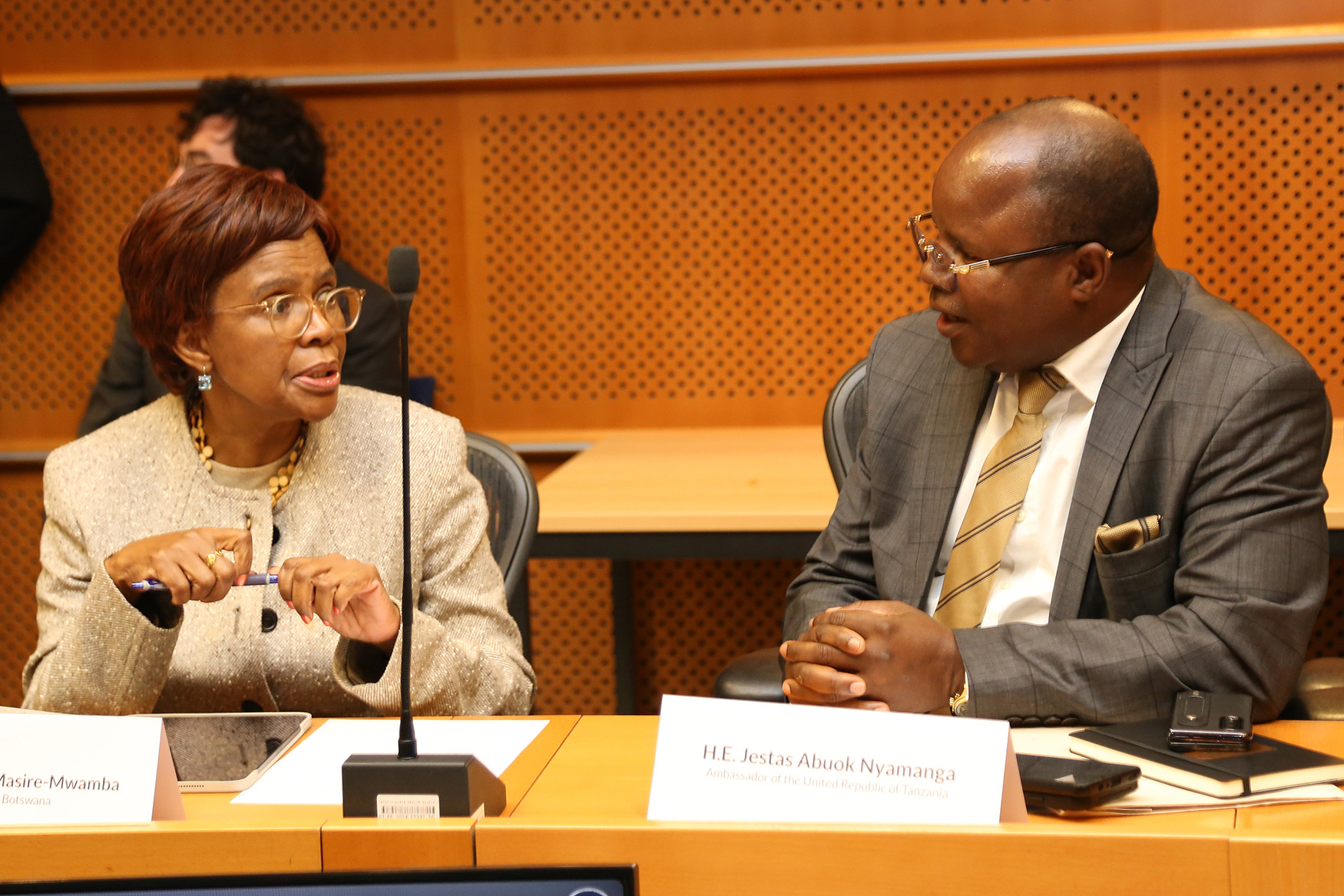
The experiences from Botswana and its expectations for CITES CoP20 were discussed by H.E. Mmasekgoa Masire-Mwamba, Ambassador of the Republic of Botswana, who also highlighted the importance of science-based decisions and a multilateral approach. Her Excellency also noted the challenge of managing ivory stockpiles in her country and referred to Botswana’s National Elephant Management Plan. She emphasised the EU’s role as Botswana’s key partner in promoting sustainable, transparent, and legal trade.
Mr Aibat Muzbay, Wildlife Biologist, Kazakhstan and Vice-Chair of Wild Sheep Partnership for Central Asia, shared a conservation success story: “Kazakhstan has proven that even a species once on the brink of extinction can be restored. From just 21,000 animals two decades ago, the saiga population has grown to nearly 4 million today, making it the most numerous migratory ungulate on Earth. The next step is to turn this conservation success into a model of sustainable use — ensuring that biodiversity protection goes hand in hand with benefits for people and society.”
Dr Dan Challender, Senior Research Fellow at University of Oxford, shared his expertise and added: “The EU has potential to demonstrate real leadership at CITES CoP20. It could do this by basing its decisions on the best available scientific evidence, but also by listening to other Parties, especially those with strong conservation records, and explicitly considering the social as well as the ecological impacts of decisions to be taken.”
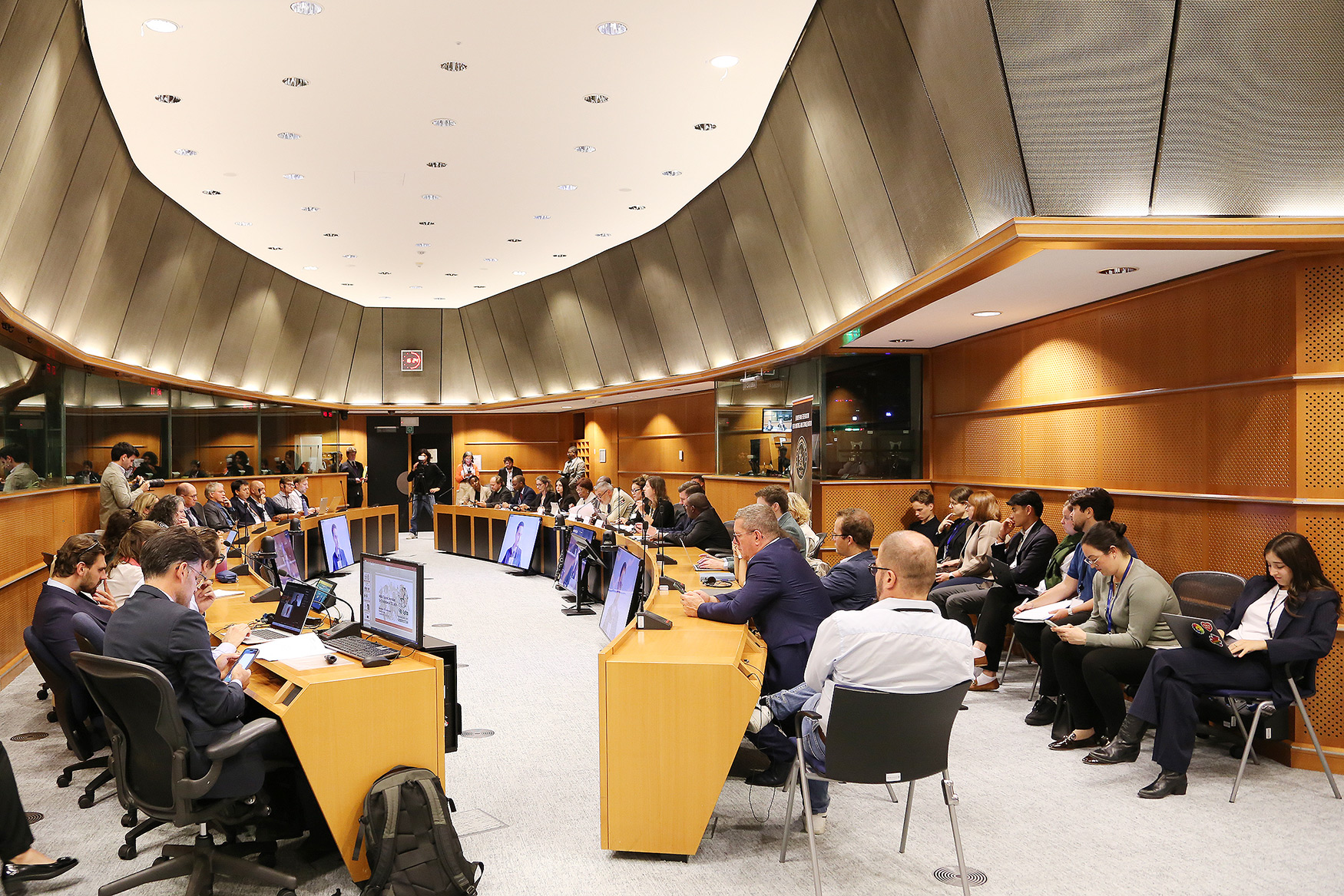
In conclusion, MEP Juan Ignacio Zoido, President of the “Biodiversity, Hunting, Countryside” Intergroup, focused on “the vital role of landowners and hunters in conservation, stressing that they care for the land daily and support wildlife. He also highlighted sustainable hunting, when scientifically managed, as a key conservation tool that funds habitat management and supports local economies. He called on the EU to defend a science-based, sustainable strategy at the next CITES meeting, rooted in the active participation of those managing our landscapes”.
The European Federation for Hunting and Conservation (FACE), the European Landowners’ Organization (ELO), the International Council for Game and Wildlife Conservation (CIC), Safari Club International (SCI), and the Wild Sheep Foundation (WSF) supported the event that was aimed to give key stakeholders a voice in Brussels.
All photos of the event are available at this link.

